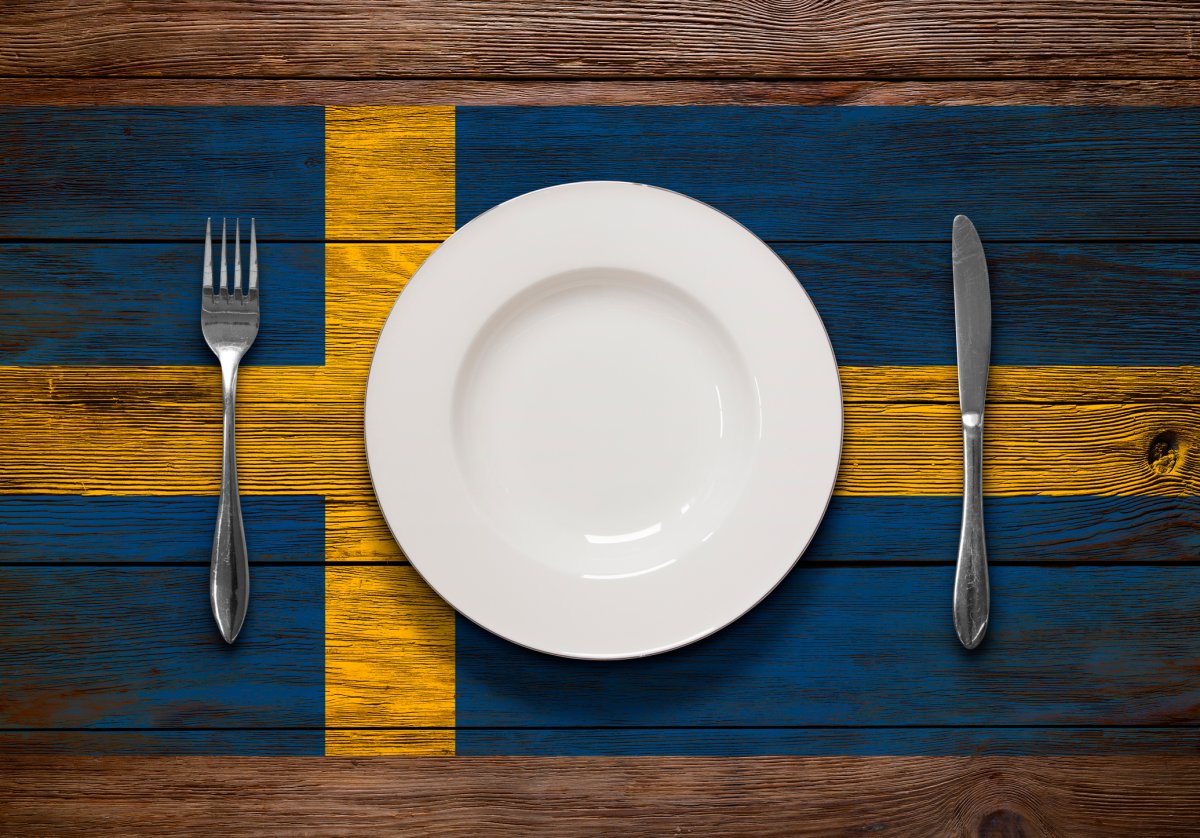In your internet travels this morning you may have come across a peculiar hashtag: #Swedengate. But what scandal has rocked the Nordic country? What has Sweden done to attract this negative attention?

Well, the answer lies in a strange cultural tradition that has the internet up in arms: Swedes don’t offer food to their houseguests.
According to some accounts, when a guest is over at a person’s house around dinnertime, the host will go eat dinner while the guest is left to entertain themselves. So, not only are guests left alone in someone else’s house, they don’t even get to eat.
On Twitter, there are thousands of tweets tagged with #Swedengate. Some are poking fun at the nation for its strange custom and others are genuinely shocked and horrified at what they see as inhospitable treatment.
But this viral phenomenon didn’t start on Twitter. It actually began on Reddit, migrated to Instagram, and then hopped over to Twitter, where most of the #Swedengate discourse is now happening.
Even more interesting, #Swedengate has evolved from jokes and shocked reactions regarding food customs, and is now helping educate internet denizens about the history of colonialism in Sweden.
How #Swedengate went viral: a timeline
This interest in the eating habits of Swedes started after a post went viral on Reddit, asking users to talk about “the weirdest thing you had to do at someone else’s house because of their culture/religion?”
One user’s comment, which now has over 32,000 upvotes, recounts a story of going to a Swedish friend’s house.
“And while we were playing in his room, his mom yelled that dinner was ready. And check this. He told me to WAIT in his room while they ate.”
Swedish pop star Zara Larsson shared a screenshot of the Reddit comment, saying that it was an example of “Peak Swedish culture.”
A few days after the Reddit post, a map popped up on Instagram, created by @loverofgeography. The map of western Europe shows which nations people are likely to offer you food if you stay as a guest at their home.
Sweden, and other Nordic and northern Germanic cultures, were identified in their research as being places where people are “very unlikely to give you food.”
https://www.instagram.com/p/CeHAOEQsFAA/
Twitter user @WallySierk reposted the map with a brief explanation about why these cultural differences exist in Europe and the phenomenon went viral again. The post now has over 85,000 likes.
According to the user, in Norse cultures, providing food and lodging is very honourable, but also creates obligations on the part of the person receiving the hospitality. The beneficiary becomes indebted to their host.
When the Reformation swept through Northern Europe, Protestantism introduced “the ideal of the free member of society, owing no one and owed nothing.”

Get daily National news
Since competition over status and the repayment of debts were a big point of conflict in Swedish society, eventually, the culture shifted and “minimized the creation of debt and obligation, and maximized the ability of the individual/family to be self sufficient,” @WallySierk wrote.
“This “not feeding the (neighbour’s) kids” weirdness is about maintaining peace in the community.”
- Couple finds 115 stuffed animals hidden in walls during B.C. renovation
- Meet Susie Wiles: The trusted insider leading Trump’s White House team
- Russia likely behind parcel explosions that threatened U.S., Canada flights: Poland
- Racist texts about ‘cotton picking’ target Black Americans, prompting probe
Here’s what the Internet had to say
On the original Reddit post that sparked #Swedengate, most commenters were shocked and used the comment as a jumping off point to make jokes about their own country’s food culture.
One user wrote, “As an Italian, I could NEVER.” Another said, “In Spain, I think you can call the police if this happens.”
“Asian person here, my mom would die if someone told her not to aggressively feed a guest,” wrote a third commenter.
Another person shared a similar story of not being fed at the house of a Swedish person: “Later on my stomach was making rediculously (sic) loud growling noises and everyone pretended to not hear it.”
But it was on Twitter where #Swedengate really took off.
People have been sharing images and memes to poke fun at the custom.
https://twitter.com/duck_lindsay/status/1531832579447525376
Others have been doubling down and sharing even more strange cultural phenomena in Sweden.
But the Swedes were quick to defend themselves and their customs, giving a bit more nuance to the phenomenon and clearing up misconceptions about their hospitality.
Linda Johansson wrote an op-ed for The Independent that gave a bit more context to the custom, explaining that it is, in fact, an attempt at being polite.
“The Swedish thinking goes like this: the other child (or the other family) may have plans for another kind of dinner, and you wouldn’t want to ruin the routine or preparations. I don’t think it is anything to do with not wanting to feed the other child or because it costs money or anything like that, it’s more to do with tradition and wanting to eat with your own family,” she writes.
Twitter users also discussed this explanation.
https://twitter.com/Tyckmyckna/status/1530574306333315073
Sweden’s history of colonialism
Before long, the conversation had switched gears from funny tweets and memes to actually critiquing Sweden for its history of colonialism and recent examples of racism in the nation.
https://twitter.com/AfroPropaganda/status/1531316523628908546
In the 1600s, Sweden began involvement in the Atlantic slave trade, abducting Africans and selling them into slavery in the Americas. Sweden also operated a handful of colonies in Africa and the Caribbean.
Sweden was one of the major suppliers of iron for the manufacturing of chains that were used to imprison slaves.
They also practiced colonialism at home, and have long discriminated against and attempted to assimilate the Sámi people of northern Europe.
In 1998, Sweden formally apologized for its treatment of the Sámi, which included forced sterilization and “Swedification” policies that banned the use of traditional languages and enforced Christianity on the population.
https://twitter.com/degeneratedmelt/status/1531361156350087170
These issues of racism and colonialism are not restricted to just Sweden, as a few Twitter users point out.
https://twitter.com/Aldanimarki/status/1531384237190008834
https://twitter.com/lg_bt21/status/1531691640993173504
Many other Twitter users used #Swedengate as an opportunity to discuss contemporary racism in Swedish society. Including how former Minister of Culture Lena Adelsohn Liljeroth was the centre of controversy in 2012 when she was photographed cutting into a cake that was in the shape of a naked African woman.
The internet has an immense power to get information in front of the eyes of millions, but what people do and say with that information can hardly be predicted. #Swedengate is just one example of how viral trends can evolve far past how they originally began.











Comments